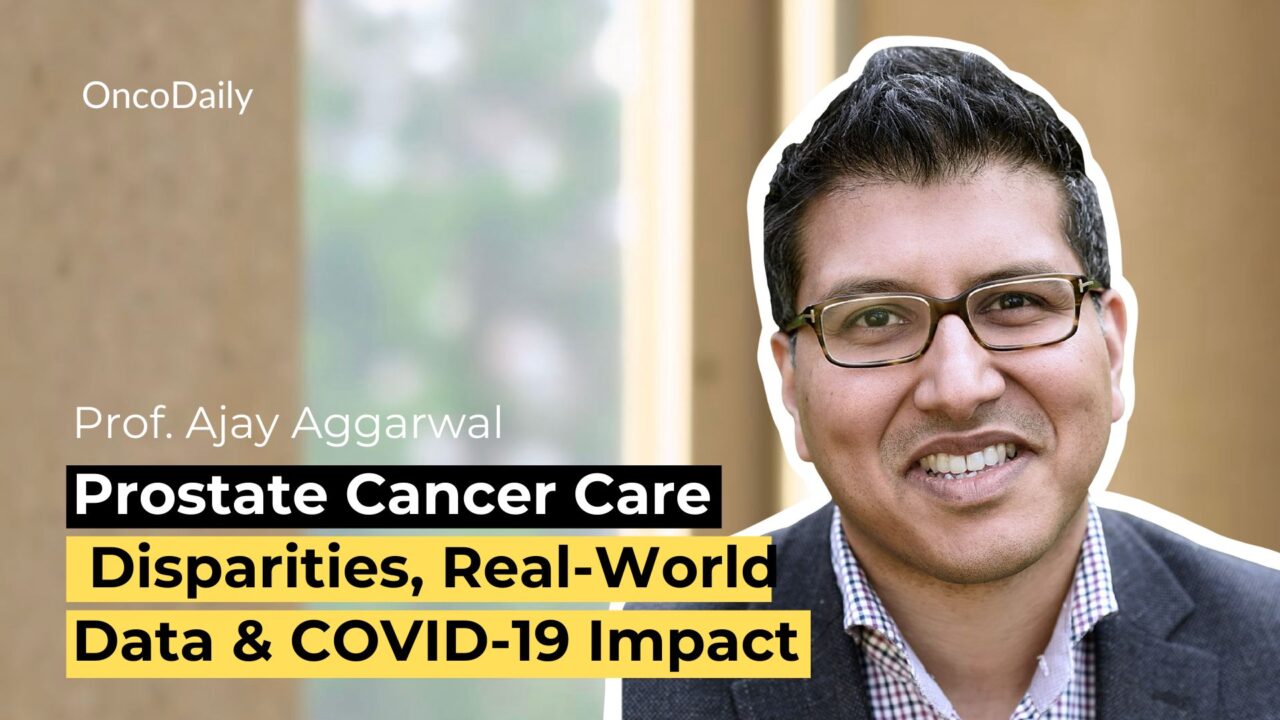Join Prof. Ajay Aggarwal, MD, FRCR, PhD, as he reflects on his journey from avoiding academia to embracing research, highlighting the critical role of asking the right questions. In this insightful talk, Prof. Aggarwal discusses the transformative power of real-world data—drawn from patient notes, billing records, and cancer registries—in enhancing access, equity, and quality in healthcare.
He sheds light on disparities in prostate cancer treatment, with only 60% of eligible patients receiving care, and the under-treatment of those over 70. Prof. Aggarwal also explores how geographic data can improve healthcare accessibility for marginalized populations, driving policy changes to improve rural cancer care. Lastly, he addresses the impact of the COVID-19 pandemic on cancer diagnosis and care, emphasizing the need for better planning and the role of health economics in shaping future policies.
Ajay Aggarwal is a Professor at the London School of Hygiene and Tropical Medicine and a Consultant Clinical Oncologist at Guy’s and St Thomas’ NHS Trust. He serves as the Clinical Director of the National Cancer Audits, overseeing one of the largest cancer quality assurance and improvement programs in England and Wales since 2023. His research focuses on cancer policy, performance assessment of cancer care, and global health.
In this talk, Ajay Aggarwal, an expert in both medical and radiation oncology, dives into how real-world data can change the landscape of cancer care, focusing on prostate cancer. He explains how collaboration between different medical disciplines and using data effectively can lead to better treatment outcomes and healthcare policies.
Aggarwal shares his experience with the National Prostate Cancer Audit in the UK, which studied over 150 hospitals. The audit uncovered worrying gaps in care: only about 60% of patients with high-risk prostate cancer were getting the treatment they needed. He points out that factors like age and distance to treatment centers often prevent patients, especially those over 70 or living far away, from receiving proper care.
One of the key takeaways is that research doesn’t always have to be about clinical trials or lab work. Sometimes, it’s about understanding patterns in real-world data like patient records and geography. Aggarwal explains how underserved communities, including those in rural areas, often face major hurdles in accessing cancer treatment, a situation made worse during the pandemic.
He also talks about the importance of using geographic information systems to pinpoint these disparities. This approach has already made a difference, helping relocate radiotherapy centers in Australia and guiding UK health policies during COVID-19.
Aggarwal stresses that to truly improve cancer care worldwide, we need standardized data sets that measure quality care in every region. He also advocates for research that focuses on local issues, particularly in places like Zambia, instead of following an international agenda that may not always fit.


